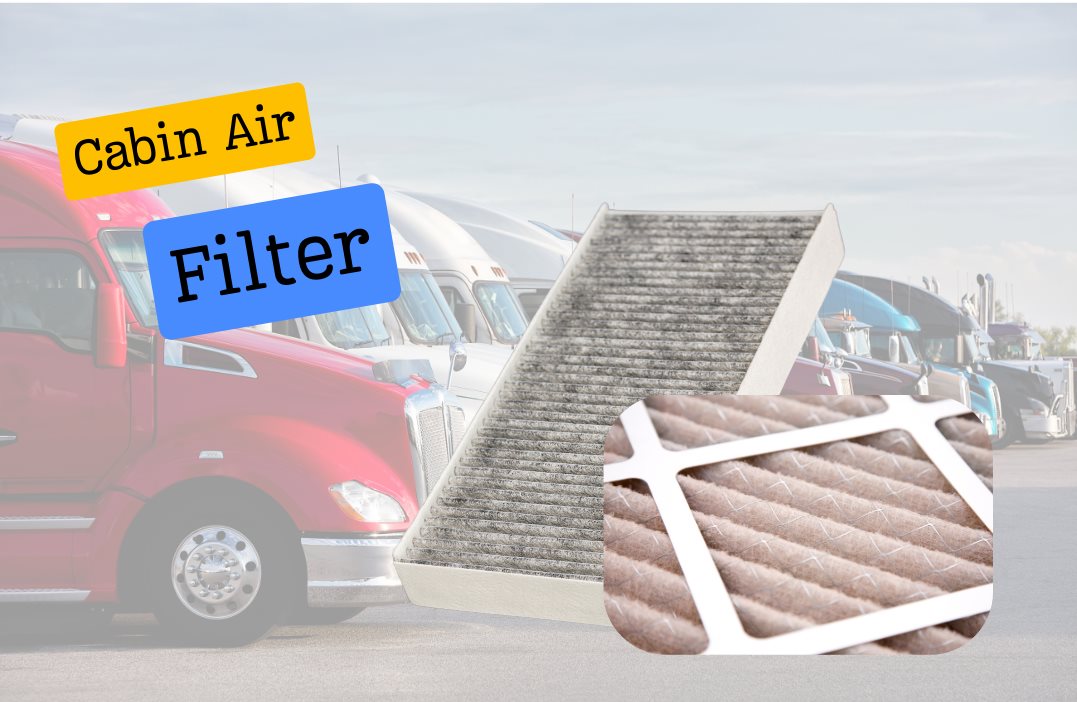
Importance of Truck Cabin Air Filters in the Transportation Industry
In the trucking industry, ensuring optimal performance of vehicles is critical for the efficiency of operations. Among the many components that contribute to a truck’s functionality and driver comfort, the cabin air filter stands out as an essential yet often overlooked part. A well-maintained truck cabin air filter ensures not only the longevity of the truck’s HVAC system but also the health and comfort of drivers on long hauls. For companies that manufacture and sell truck spare parts, emphasizing the importance of high-quality truck cabin air filters can be key to meeting customer demands and enhancing the reliability of their fleet.
What is a Truck Cabin Air Filter?
A truck cabin air filter is a component of the vehicle’s HVAC (heating, ventilation, and air conditioning) system. Its primary function is to filter out airborne particles such as dust, pollen, soot, and other debris from the air entering the truck cabin. Modern truck cabin air filters can also filter out harmful pollutants and even unpleasant odors. As a result, truck drivers are provided with a clean and comfortable environment inside the cabin, which is especially important during long-haul journeys.
Over time, as the filter collects contaminants, it becomes clogged and less effective. Replacing or maintaining this filter is essential for both the health of the driver and the efficient functioning of the vehicle.

The Role of Cabin Air Filters in Truck Performance
While most people associate air filters with air quality, they play a critical role in maintaining the overall efficiency of a truck. A clogged or dirty cabin air filter can result in poor ventilation inside the cabin, making it harder for the truck’s HVAC system to regulate temperature and airflow. This increased workload can lead to higher energy consumption, reducing the fuel efficiency of the truck. Additionally, dirty filters can cause wear and tear on the HVAC system, potentially leading to costly repairs.
Truck drivers are often exposed to various pollutants, especially on highways and industrial areas where the concentration of dust and harmful particles is higher. A high-quality cabin air filter can significantly reduce these contaminants, improving the air quality and making the driver’s cabin a much safer and more comfortable environment.
Health Benefits of Truck Cabin Air Filters
One of the most crucial benefits of truck cabin air filters is their impact on the health of drivers. Truck drivers spend long hours on the road, and many are exposed to harmful pollutants that can aggravate respiratory conditions such as asthma, allergies, and bronchitis. A cabin air filter acts as a barrier, filtering out airborne particles like dust, pollen, and bacteria, ensuring that the air inside the cabin is clean and safe to breathe.
For drivers with pre-existing health conditions, the importance of a well-maintained air filter cannot be overstated. Prolonged exposure to poor air quality inside a truck can lead to increased fatigue, headaches, and even more serious health issues over time. Therefore, companies should prioritize the replacement of cabin air filters in their trucks, ensuring the well-being of their drivers and the efficiency of their operations.
Types of Truck Cabin Air Filters
There are several types of truck cabin air filters, each designed to meet different needs:
- Particulate Filters: These filters are designed to trap dust, pollen, and other airborne particles. They are the most common type of cabin air filter and are suitable for general use.
- Carbon-Activated Filters: These filters go a step further by trapping not only particles but also gases and odors. Carbon-activated filters are particularly effective in environments with high levels of pollutants, such as urban areas and industrial zones.
- HEPA Filters: High-Efficiency Particulate Air (HEPA) filters are capable of trapping 99.97% of particles as small as 0.3 microns. These filters provide the highest level of filtration and are ideal for trucks operating in highly polluted environments or for drivers with severe allergies or respiratory conditions.
Choosing the right type of filter depends on the operating conditions of the truck and the specific needs of the driver. For instance, a truck operating in a rural area might require a particulate filter, while a truck driving through a city or industrial zone might benefit from a carbon-activated or HEPA filter.
Signs That a Truck Cabin Air Filter Needs Replacement
Maintaining a truck’s cabin air filter is crucial for both the health of the driver and the efficiency of the vehicle. Here are some signs that indicate it’s time to replace the cabin air filter:
- Reduced Airflow: If the air coming through the vents feels weak, it might be due to a clogged filter.
- Unpleasant Odors: A musty or unpleasant smell inside the cabin can indicate that the filter is full of contaminants.
- Increased Allergies: If the driver experiences more frequent allergy symptoms while driving, it could be a sign that the air filter is not effectively trapping allergens.
- Dirty or Discolored Filter: Visually inspecting the filter is the most straightforward way to tell if it needs replacing. If the filter appears dirty or discolored, it’s time for a change.

The Importance of Regular Maintenance
Truck cabin air filters should be checked and replaced regularly to ensure optimal performance. Most manufacturers recommend changing the filter every 12,000 to 15,000 miles, though this can vary depending on driving conditions. Trucks that operate in dusty or polluted environments may need more frequent replacements.
In addition to regular replacement, it’s essential to use high-quality filters from trusted suppliers. Low-quality or improperly fitted filters can fail to provide adequate protection, leading to poor air quality and potential damage to the HVAC system.
Choosing the Right Truck Cabin Air Filter Supplier
For companies that manufacture or sell truck spare parts, offering high-quality cabin air filters is essential. Customers rely on trusted brands to provide durable and effective products that enhance the performance of their vehicles. When choosing a supplier for truck cabin air filters, it’s essential to consider the following:
- Quality and Durability: High-quality materials ensure that the filter lasts longer and performs better, reducing the need for frequent replacements.
- Certifications and Standards: Filters should meet industry standards for filtration efficiency and durability. Look for certifications that indicate the filter has undergone rigorous testing.
- Customization Options: Trucks operate in diverse environments, and drivers have different needs. Offering a variety of filters—such as particulate, carbon-activated, and HEPA filters—can help meet the demands of different customers.
- Competitive Pricing: While quality is important, competitive pricing is essential in the truck spare parts industry. Offering high-quality filters at affordable prices can help build customer loyalty.
Conclusion
Truck cabin air filters may be small, but they play a significant role in the performance and comfort of a truck. From enhancing air quality and driver health to maintaining the efficiency of the HVAC system, these filters are an essential component in any truck. For companies in the truck spare parts industry, offering top-notch filters that meet the needs of their customers is key to building long-lasting relationships and ensuring the smooth operation of trucking fleets across the globe.
Follow us to get detailed information: Cabin Air Filters




